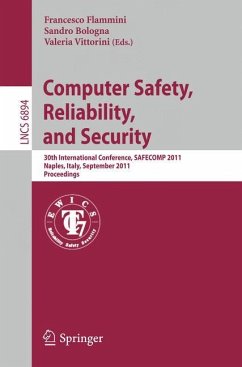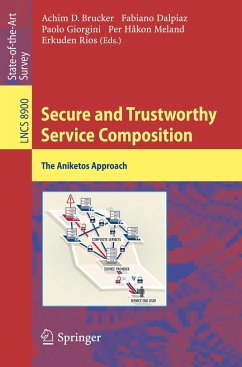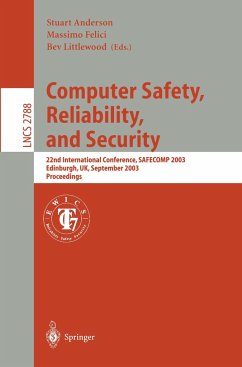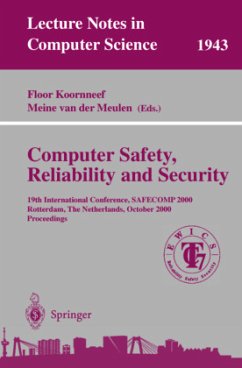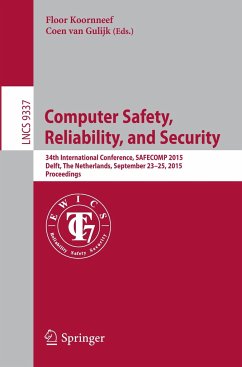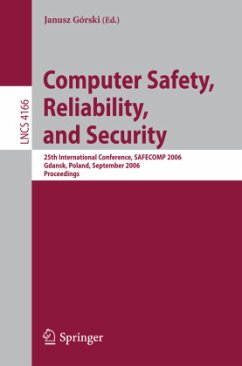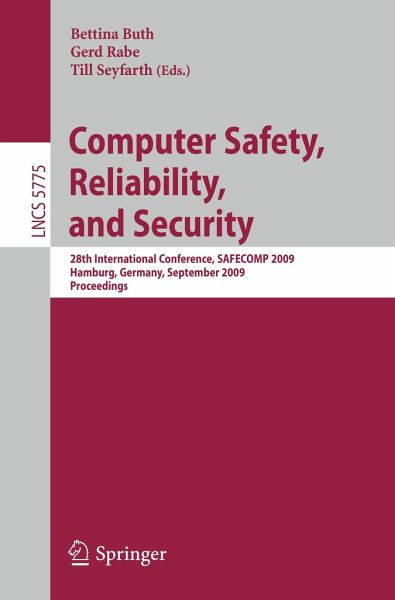
Computer Safety, Reliability, and Security
28th International Conference, SAFECOMP 2009, Hamburg, Germany, September 15-18, 2009. Proceedings
Herausgegeben: Buth, Bettina; Rabe, Gerd; Seyfarth, Till

PAYBACK Punkte
19 °P sammeln!
Computer-based systems have become omnipresent commodities within our - vironment. While for a large variety of these systems such as transportation systems, nuclear or chemical plants, or medical systems their relation to safety is obvious, we often do not re?ect that others are as directly related to risks concerning harm done to persons or matter as, for example, elevator control or mobile phones. At least we are not aware of the risk in our daily use of them. Safecomp as a community and a conference series has accompanied this - velopment for 30 years up to Safecomp 2009, which was the 28t...
Computer-based systems have become omnipresent commodities within our - vironment. While for a large variety of these systems such as transportation systems, nuclear or chemical plants, or medical systems their relation to safety is obvious, we often do not re?ect that others are as directly related to risks concerning harm done to persons or matter as, for example, elevator control or mobile phones. At least we are not aware of the risk in our daily use of them. Safecomp as a community and a conference series has accompanied this - velopment for 30 years up to Safecomp 2009, which was the 28th of the series. During this time the topics and methods as well as the community have und- gone changes. These changes re?ect the requirements of the above-mentioned ubiquitious presence of safety-related systems. Safecomp has always encouraged and will further encourage academia and industry to share and exchange their ideas and experiences. After 30 years, we as the organizers of Safecomp2009, found it imperative to take stock: which methods found their way into the application areas; which new approaches need to be checked for their practical applicability. As di?erent application domains developed their own approaches over the previous decades, we tried to attract people with di?erent backgrounds for this conference. - though the years 2008 and 2009 were not easy with regard to the overall global economic situation, we succeeded with this goal.





